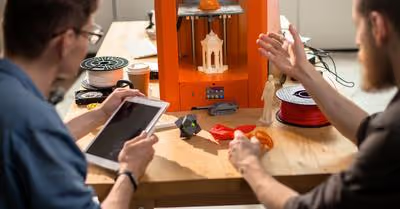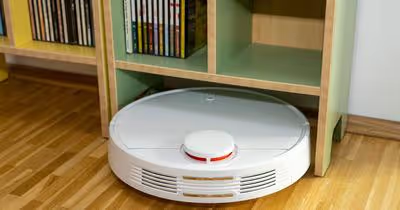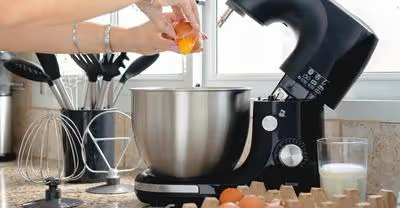Table of Contents
What is a Smart Home?
A smart home is essentially a collection of devices that can be controlled from one hub through the internet. Many smart home devices can be voice-controlled through a single interface or app. You can switch on, off, monitor, access, adjust and control a range of devices either independently and remotely. When your home technology works together from a single hub, it's generally referred to as a "connected home" and can be controlled from your smartphone or through a mobile touch screen device.
A smart home can also allow you to receive notification and alerts that can greatly help you manage and keep track of your home from wherever you are around the globe. With home automation, you can tap into high-tech functionality, luxury, and comfort that would otherwise not be possible without technology.
Having some of the most popular smart home devices such as Google home hub, Amazon's Alexa assistant, and Apple's Siri-controlled HomePod, as well as other numerous smart home devices, will enable you to manifest your Iron Man fantasies and, of course, your dreams. With a smart device in place, you'll be able to conveniently control every part of your home.
How Do Smart Home Devices Work?
The main foundation of any smart home is a strong internet connection. That's because smart devices will only work through the internet. Without a connection, your smart devices will not work properly and this is one of the obvious downsides of a smart home.
With that in mind, it's almost impossible to explain how smart home devices work as there's no single protocol that's universally accepted. In other words, smart home technology may vary from company to company, country to country, and also the type of automation. And because home automation is still evolving, many companies will always come with new technologies and developments that may significantly vary.
But even with that, the standard protocol for home automation used to be X10. This helped in connecting smart devices through radio frequency, power line wiring, and wireless-based protocols. Today, there are numerous protocols such as Z-Wave, Zigbee, and Insteon. These protocols rely heavily on modern wireless technology to send messages and alerts to and from devices.
Central Control System - Additionally, modern home automation systems are controlled from a central hub. This is a single-center from where you can control various smart devices in your home. From this central point, you can control your thermostat, your lights, sprinklers, doorbells, speaker, dryer, refrigerator, security camera, and many more. In most cases, central control systems are operated through a wall-mounted terminal and can be accessed by a remote control device such as a smartphone, a computer, or a tablet.
With a central control system, you can easily access various smart devices within your home from a central system. It's also of high quality but can be expensive and will require professional installation.
App-based - This type of smart home technology is connected with the cloud, which is a vital part of the Internet Of Things and is highly popular in modern homes. They work by connecting your smart devices via Wi-Fi through a cloud server, which you can access through the smart devices' apps on your phone or computer. You can also use Bluetooth and it is great for DIY services. They're also affordable, up to date, and offer several options.
What are the Benefits of a Fully Integrated Smart Home?
Many people might think that home automation is a stylish and cool way of keeping up with the latest technology or a chance for homeowners to show off. However, there are several benefits of having a smart home. Let's look at some of them.
Making Life Simpler, Easy, and Comfortable
Your home is your oasis; a place where you take refuge after a long day and it should be as comfortable as possible. And because we all try as much as possible to make our homes comfy, this should be one of the main reasons why you should integrate home technology into your home. Things like smart lights, sensor detection, and even simple schedules will make your life simpler, easy, and comfortable.
Whether you've forgotten to turn off the lights or just want to make them dimmer, smart devices give you the convenience of remotely controlling various parts of your home. It's a great way of ensuring that you can control various parts of your home at the touch of a button.
The Convenience of Managing Your Home Devices from One Place
Smart devices give you the convenience of managing various parts of your home from one place and this is a huge factor why you should upgrade to a smart home. The fact that home automation allows you to manage your smart devices from one interface is a concrete reason why you should have a smart home.
All you'll have to do is learn how to use these smart devices and you'll tap into the countless devices and their functions throughout your home. This is a perfect way of avoiding a lengthy learning process on how to use each smart device. Instead, you'll easily access the smart devices in your home and use them from the convenience of a central hub.
Saving Energy and Money
The main driving force behind the creation of smart homes is their potentials of saving energy and money. Smart thermostats, as well as other automated heating and air conditioning devices, are precisely made and automated to heat and cool homes. This is, of course, essential in reducing your energy bills. Smart lights and other appliances are known to use less energy as they can power down when not in use. Needless to say, such products should always be high on your list when it comes to incorporating smart devices.
In essence, smart devices can increase your home's energy efficiency but this will depend on how you use your smart home devices. Even with that, there are numerous ways to make your home more energy-efficient. For instance, you can program your smart thermostat to your appropriate temperature preferences. You can also set your smart lights to turn on and off when you enter or leave your home so that you don't have to worry about energy wastage.
Maximizing Your Home Security
Alarm systems and surveillance cameras are integral in protecting your home but your smart home networks can maximize your home security and the way your alarms and cameras work. Several smart home devices can make your home safer. From lights, doorbells, alarms, to cameras, you have lots of options.
There are also home automation systems that can connect to motion detectors, automated locks, as well as other tangible security measures that you can just activate from wherever you are through any mobile device. You can also choose to receive security alerts on your various devices and monitor activities in real-time whether you're at home or somewhere around the world.
You can Remotely Control Home Functions
We often underestimate the power of being able to control our homes' functions remotely or from a distance. Imagine a situation where you're at work and it's extremely hot but you want to go home and find your space as cool as possible. Well, you can use a smart device to set the right temperature just in time before you get home.
And what about if you want to make dinner as soon as you reach home and don't want to wait for the oven to preheat? You can remotely have the oven preheat while you're on your way home. Better still, you can check who visited your home when you were not there or to turn off whatever lights you left on.
Smart Homes Have Improved Appliance Functionality
You may have some of the latest appliances but smart homes will allow you to run these appliances much better. For example, a smart oven will help you cook your food to perfection without worrying about undercooking or overcooking it. Again, a smart TV will be efficient in helping you find better channels, apps, or your favorite programs. You can also manage your audio system, movies, and music collection effortlessly whether you're alone or entertaining your guests.
That being said, smart devices will not only make controlling your appliances easier but also augment their effectiveness. Ultimately, connecting your appliances with smart devices will make your life much easier, a lot better, and quite enjoyable.
Smart Homes and Devices offer Flexibility
Smart home devices and systems are generally very flexible when it comes to using or accommodating other devices, appliances, and technology. Your home appliances may seem complicated but there are impressive smart devices out there that can accommodate them.
You can also add newer appliances that are compatible with your home automation as you replace older ones. In essence, the fact that these appliances are compatible and can seamlessly integrate with smart devices will make it a lot easier for you to upgrade to smart technology.
Home Management Insights
With smart devices in place, homeowners have the opportunity to tap and manage how various parts of their homes are operating. You'll monitor the kinds of meals you eat, what you watch on TV, what you keep in your refrigerator, your energy consumption devices, and many more. In essence, smart homes and devices will enable you to analyze your daily behaviors and habits and maybe a superb way to make adjustments to your lifestyle.
Smart Devices will Increase the Value of Your Home
While smart devices can be worthwhile for your benefits, it could also be beneficial if you're looking to sell your home. According to recent research by T3 Sixty, 40% of realtors believe that a smart home will sell a lot quicker than a normal hope regardless of the asking price.
You should, however, keep in mind that a smart home is more attractive to Millennials or younger buyers. And because this demographic is entering the property market en masse, it would be unwise to overlook their needs. In other words, adding the right smart devices to your home and making your home fully automated will not only increase its value but will be a great way of ensuring that your home sells quickly and at a good price.
What are the Downsides of a Smart Home?
To be honest, smart home is a trend that's gaining ground quite quickly and its popularity seems to soar with each passing year. At first glance, a smart home may seem cool and nifty but it comes with some downsides that you should always be aware of, especially if you're thinking of upgrading your home to a smart home.
There could be Issues with Integration
It's of great importance to pay attention to integration as there could be issues with a particular smart device not connecting to another device. In other words, some smart devices may support other devices while not supporting others and this can be a major problem. As such, you must buy products that are compatible and work with various smart devices.
For instance, you can choose smart products that work with Apple Homekit, Google Assistant, or Alexa but this may also depend on your preferences. Better still, you can go for products that support cross-platform compatibility. You certainly do not want to be in a situation where your home's smart device doesn't work with your smart home assistant.
Be Prepared for Occasional Problems
The main aim of smart home technology is to make your life better, easier, and more comfortable. However, we're still at the early stages of the smart home revolution and very far from getting everything automated. With that in mind, you should be aware that there comes a time when a given part of your home automated system will either breakdown or fail to work.
Take lighting, for example. Transitioning from the physical switches to smart control devices can be challenging. Here's why. You may have someone who's not familiar with the system use the physical switch to turn off the lights. You'll then have to physically turn it back on before it can work through the smart control device and this can be frustrating and inconveniencing. There are also instances where the voice assistant can become unresponsive, so you'll have to learn how to set up your devices before they start working. At this point, you may be wondering whether it's worth the trouble when you could just physically switch on the light.
Smart Devices are Prone to Changes and Abandonment
Smart devices are still at infancy stages and often going through changes and sometimes abandonment. Many companies strive to upgrade their devices and may abandon previous ones if they feel that they're no longer needed or up to date. Things are rapidly changing in the home automation industry and what works now may become redundant in the next few months or years.
Most manufacturers will have some smart devices discontinued and this will mean that you have to upgrade every so often, which can be costly, confusing, and very frustrating. In short, obsolescence is a real problem in the home automation industry and you just never know when a smart device will become obsolete.
There are Real Security and Privacy Concerns
What would be your take if you learned that the government or any other agency is eavesdropping on your private conversations or activities through a smart device, say Amazon Echo? What about if they could monitor your activities through your smart cameras? Worst still, what if hackers could access your sensitive information through smart devices in your home? Well, this could be the last straw for many homeowners.
This may be hard to believe but security and privacy threats are some of the major issues that revolve around having internet-connected devices in your home. While most smart device manufacturers do their best to ensure that you're always safe, there are chances that some devices could be compromised and no homeowner would want to be in such a risky situation.
So is a Smart Home worth It?
The sheer amount of interest in smart home technology from consumers has been amazing in the last few years. While some of the biggest tech companies are trying to outdo one another and have a huge share of the market, the baton still lies with you: the consumer. In other words, it's in our belief that nobody should tell you whether or not to upgrade your home to a smart home. When it comes to homeownership, we may have different preferences and you should always be able to decide alone. All we can do is to offer you as much information as possible to help you make an informed decision.
Unquestionably, a smart home is exciting and certainly worth experiencing or trying out. Despite the above-mentioned downsides, there are several reasons why you should feel excited about the smart home and the changes and benefits that it could bring to your life and home in general. Should you join the smart home bandwagon? Of course, yes. But should you act with a little caution? Definitely. The best thing to do is to weigh both sides and see what works for you, your needs, and your preferences.
So if you've decided to go with technology and upgrade your home to a smart home, it would be wise to first consider the benefits that you'll get from home automation. You should start small by, say, installing a device or two and see what kind of changes they bring to your household. If you see its real benefits in terms of costs, convenience, energy-saving, and improved functionality, you can expand steadily until your entire home becomes smarter. But if you don't see any real benefits of the smart devices, then maybe it's not worth the hassle; just stick to your manual and old school way of life.
We just hope that this article has given you an overview of whether or not a smart home is worth the investment. All you have to do is start small and see whether or not a smart home is for you.
Recent Articles

















